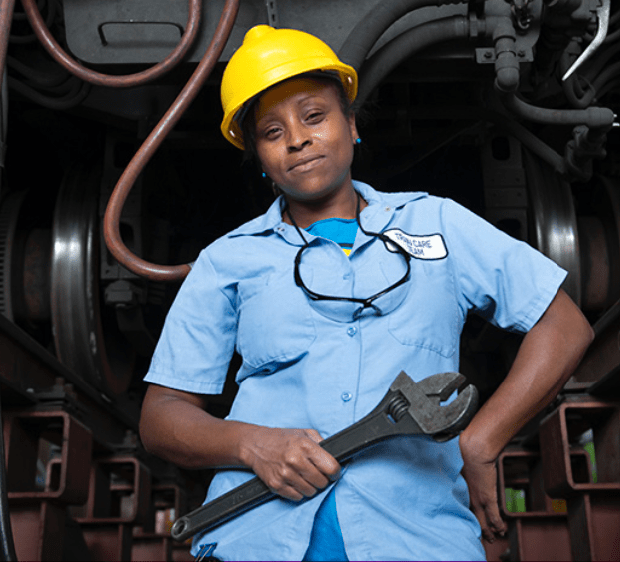Read IWPR’s new briefing paper, Building a Better Future for Women in New Orleans Post COVID-19: Opportunities for Women in Skilled Trade and Technical Jobs.
Watch IWPR’s webinar discussion on how to improve women’s access to skilled trade and technical jobs in New Orleans.
The COVID-19 pandemic has laid bare the inequities faced by women—particularly Black and Hispanic women— in the New Orleans metro area and around the nation. A weak safety net, occupational sex- and race-segregation, and low wages in many female-dominated jobs contribute to women’s economic precariousness. Women are overrepresented in jobs in the leisure, hospitality, and tourism sectors which tended to pay low wages even before the COVID-19 pandemic and related recession. Since the recession hit, these industries have also lost the largest numbers of jobs. By contrast, very few women work in higher-paying sectors such as construction, manufacturing, transportation, and the Port. While women make up 49.6 percent of the NOLA workforce, they are just 11.4 percent of all workers in construction, 23.2 percent in manufacturing, and just 25.7 percent in transportation. The representation of Black and Hispanic women, among other women of color, is even lower.
A new IWPR briefing paper shows that occupational and industry segregation is one of the primary contributors to gender- and racial-wage gaps that leave many women and their families economically insecure. Black and Hispanic women in New Orleans were paid just 50 cents for every dollar paid to White men, a racial and gender wage gap even larger than the national wage gap. Without good jobs and a strong public safety net, COVID-19 has meant many women are unable to meet their families’ basic needs.
Increased recruitment and retention of women into well-paid trade and technical jobs present an opportunity for economic security for women in New Orleans. Plumbers, pipefitters, and steamfitters, for example, had roughly the same average hourly earnings as middle school teachers ($24.87 and $24.10 respectively in 2018). Because of the earn-as-you-learn apprenticeship route, becoming a skilled plumber does not require a 4-year college degree like becoming a middle-school teacher does.
Trades and other technical occupations offer real opportunities for women in NOLA. Yet women are fewer than one in 20 of workers in Construction, Maintenance, and Natural Resources occupations, and fewer than one in five of workers in Production, Transportation, and Material Moving occupations.
Why so few? There hasn’t been a concerted effort to introduce women to these opportunities either by making career and technical education (CTE) and apprenticeships available to girls in high school or by providing pre-apprenticeship and apprenticeship opportunities to adult women looking for a new career, especially one that pays enough to provide for their families. Given that employers regularly face a shortage of skilled trade and technical workers, reaching out to women generally, and Black and Hispanic women in particular, will be crucial to the economic recovery in NOLA and to economic growth in the region.


